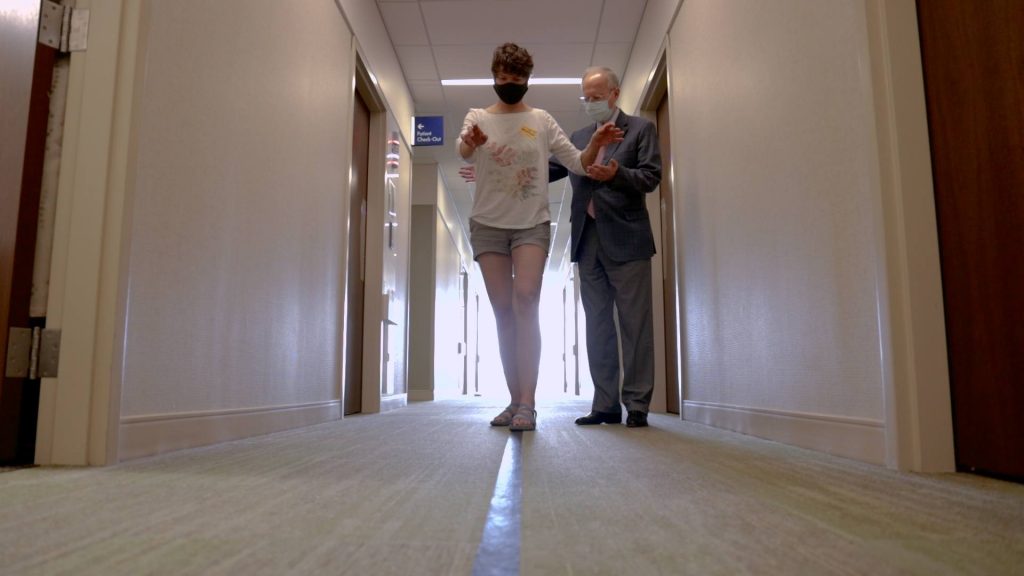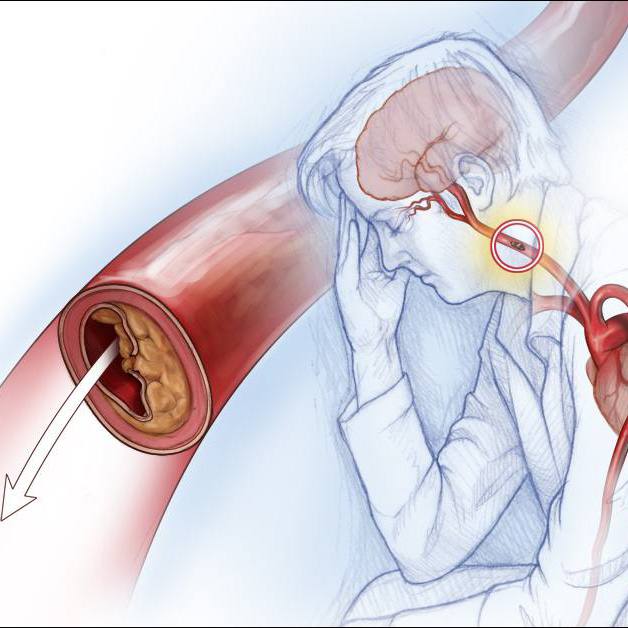
The changes were subtle at first. "Almost unnoticeable," says Lisa Miller, remembering the symptoms that seemed to appear suddenly in 2017.
At a holiday celebration, the Front Royal, Virginia, project engineer remembers falling out of her shoes. "My left heel kept coming out from my shoes," she says. She chalked it up to too much merriment.
A few months later, a co-worker told Lisa her gait was off and that she was dragging her left foot.
"I didn't think I did. I didn't feel it," says Lisa. But soon after, another colleague noted her concern. "She said I was walking like her. And she had multiple sclerosis."
After a visit with her primary health provider, a local neurologist and undergoing several scans, including an MRI, Lisa was starting to worry.
'Could it be what my dad had?'
Lisa's father, Warren Miller, had passed away in 2007 at 66, after a multiyear battle with a neurologic illness that no one had been able to accurately diagnose.
"When the neurologist in Virginia said to me, 'This is no MS I've ever seen,' that's when I said to myself, 'Could this be what my dad had,'" says Lisa.
It was only after his death ― and after his neurologist realized there might be a connection to research happening at Mayo Clinic ― that the family learned what had plagued Warren. The disease is known as CSF1R-related leukoencephalopathy, a rare, rapidly progressing disease that causes cognitive decline; personality changes; and a range of movement disorders, including Parkinsonism, seizures and potential paralysis.
As of May 2021, only 300 cases have been documented around the world. There is currently no cure.
In late 2019, Lisa flew to Jacksonville, Florida, to meet with Zbigniew Wszolek, M.D., a Mayo Clinic neurologist and Haworth Family Professor of Neurodegenerative Diseases, who has been leading research into CSF1R-related leukoencephalopathy for more than two decades.
"I knew if I had this disease that Dr. Wszolek was the person I needed to see," says Lisa, whose mobility has begun to wane further.
When Lisa received the diagnosis, it was a "nightmare come true" for the then 39-year-old and her family.
"It was a big pill to swallow when we heard the diagnosis," says Mary Kenney, Lisa's sister. "We watched our father go through it, and we knew the outcome."
A different fate, thanks to cancer care
Thanks to its collaborative model of care, Lisa learned her fate might be different than her father. Dr. Wszolek thought she was a good candidate for an emerging treatment with what was traditionally a cancer therapy: bone marrow transplantation.
"Since Lisa's disease is due to a genetic defect in her brain cells, which causes them to die, she could potentially be treated by replacing her white blood cells with bone marrow from a person who doesn’t have the faulty gene,” says Dr. Wszolek. "We thought Lisa would then produce normal white blood cells, and that could stabilize her disease."
Dr. Wszolek referred Lisa to his colleague, Ernesto Ayala, M.D., a hematologist and oncologist with the Mayo Clinic Cancer Center, who specializes in bone marrow transplant. Though the treatment was not a guarantee, Lisa was on board. She trusted Mayo Clinic, largely because she had witnessed their research progress.
"I knew I would have the best chance with Mayo Clinic," says Lisa.
Rare disease research innovation
After her father had passed away, Lisa's family donated his brain for scientific research. Only then were doctors able to confirm the condition he had. At that time, brain biopsy or postmortem analysis were the only way to diagnose CSF1R-related leukoencephalopathy.
But Dr. Wszolek has helped change that.
With Mayo Clinic colleagues, an international group of collaborators and families ― including Lisa's ― Dr. Wszolek collected blood samples and helped identify the genetic mutation that causes the disease. This same team of collaborators also has developed radiological scales and other tools to improve diagnosis and the ability to predict the disease's progression.
"Now we can diagnose this illness accurately through widely available commercial genetic analysis, with no need to do brain biopsy," says Dr. Wszolek. He estimates there may be close to 25,000 cases of the disease in the U.S., with thousands more worldwide.
A prognosis of hope
Lisa underwent a bone marrow transplant on Feb. 12, 2020. She was one of the first people in the U.S. to undergo bone marrow transplantation for her condition.
Lisa saw changes within weeks after the procedure, including improvements in her strength and mobility. She gave up the walker she was using to maintain balance and is driving again. She’s back at work as a project manager at the U.S. Army Corps of Engineers. And every day she says, she sees more improvement. After recent imaging and other tests, Lisa learned from Drs. Ayala and Wszolek that her disease has stabilized.
The news is a dramatic reversal from her initial outlook, she says. "When I first learned of my diagnosis, I was basically counting the days until I died," Lisa says. "Now I feel like I have five or 10 years, and that's amazing."
Dr. Wszolek says more work must be done to prove the long-term effectiveness of bone marrow transplantation, but his hope is that it and other new therapies on the horizon can be used to treat patients earlier in the disease process, even before symptoms appear, to give them healthier lives and a normal life span.
But he also says that Lisa's results are a testament to her spirit. "Lisa is very positive and persistent," Dr. Wszolek says. "She is always trying to find solutions, and she is very engaged in physical therapy and other aspects of her treatment. She's made remarkable achievements in a relatively short amount of time and is an inspiration to me and other patients."
Lisa notes that she continues to improve, seeing increases in her mobility and strength. She celebrates the little moments, like driving to a spa 40 minutes from her home. "I don't take anything for granted because nothing is promised. But my world is getting bigger every day. I'm so grateful to Mayo Clinic."
Related Articles







